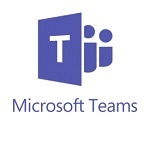TechnologyCounter provides genuine, unbiased real user reviews to help buyers make informed decisions. We may earn a referral fee when you purchase through our links, at no extra cost to you.
List of 15 Best Virtual Meeting Platforms
Showing 1 - 15 of 35 productsZoho Meeting is a secure online meeting platform and webinar solution that helps you connect, collaborate, and work remotely with efficacy. Schedule online meetings, stream live webinars, and enhance your remote collaboration experience with our high...Read Zoho Meeting Reviews
GoToMeeting is an innovative web conferencing software that allows teams to collaborate and connect in real-time, no matter where they are located. With its easy-to-use interface features, GoToMeeting is the ideal solution for businesses looking to s...Read GoToMeeting Reviews
Google Meet is a video conferencing platform that allows individuals, teams, and organizations to connect and collaborate from anywhere. With its user-friendly interface, seamless integration with other Google tools, performance, Google Meet is the i...Read Google Meet Reviews
Microsoft Teams is a collaboration tool for any team. With its seamless integration of chat, video conferencing, file sharing, and more, Teams streamlines communication and boosts productivity. Say goodbye to endless email chains and scattered inform...Read Microsoft Teams Reviews
ZOOM is a tool for seamless video conferencing, allowing you to connect with your team, friends, and family no matter where you are. With its intuitive interface features, ZOOM provides the perfect solution for efficient remote communication. Say goo...Read ZOOM Reviews
Slack is more than just a communication tool, its a collaboration hub that brings teams together. With its user-friendly interface and seamless integrations, Slack makes it easy to stay connected and productive, no matter where you are. Say goodbye t...Read Slack Reviews
OnBoard BMS is a groundbreaking board intelligence platform designed to streamline traditional board processes and enhance the efficiency of meetings. Sign up for a free trial now and experience the benefits without any obligations!...Read OnBoard BMS Reviews
BigMarker is a highly versatile and user-friendly online platform that allows individuals and organizations to easily host and participate in virtual events, meetings, and webinars. With its innovative features design, BigMarker has revolutionized th...Read BigMarker Reviews
Meta Workplace is a software solution designed to streamline and enhance your teams productivity. With intuitive features and customizable options, Meta Workplace is revolutionizing the way businesses operate. Say goodbye to scattered projects and he...Read Meta Workplace Reviews
Skype is a reliable and user-friendly communication platform that connects you with loved ones, colleagues, and clients all around the world. With its seamless video and voice calling features, instant messaging, and screen sharing, Skype makes stayi...Read Skype Reviews
Blizz is more than just a software, its a game-changer. Designed with user-friendliness and functionality in mind, Blizz revolutionizes the way teams collaborate and communicate, allowing for seamless virtual interactions. With Blizz, say goodbye to...Read Blizz Reviews
Airmeet, the ultimate virtual event platform that revolutionizes online gatherings. With advanced features and seamless integration, Airmeet allows you to effortlessly host conferences, webinars, networking events, and more. Say goodbye to the limita...Read Airmeet Reviews
ON24 is a leading software platform that helps businesses engage their audiences through interactive webinars, virtual environments, and multimedia content. With a focus on driving connection and collaboration, ON24 revolutionizes the way companies c...Read ON24 Reviews
Livestorm is a and innovative webinar software that allows you to effortlessly create, promote, and host engaging online events. With its user-friendly interface features, Livestorm makes it easy to connect with your audience and deliver dynamic pres...Read Livestorm Reviews
Pexip is the all-in-one solution for seamless virtual communication. With Pexip, you can connect, collaborate, and communicate effortlessly with anyone, anywhere, on any device. Say goodbye to complicated video conferencing and hello to a simple, int...Read Pexip Reviews
- What Is Virtual Meeting Platforms?
- Top Reasons Why Businesses Need Virtual Meeting Platforms?
- What Are the Top Key Features of Virtual Meeting Platforms?
- What Are the Top Benefits of Virtual Meeting Platforms?
- What Are the Steps to Choose the Right Virtual Meeting Platforms?
- What Are the Types of Virtual Meeting Platforms for Different Industries?
- What Are the Technology Trends for Best Virtual Meeting Platforms?
- What Are the Deployment Options for Virtual Meeting Platforms?
What Is Virtual Meeting Platforms?
A virtual meeting platform is a sort of technology that is used to facilitate virtual meetings or conferences. Individuals can communicate and cooperate through audio, video, and text chat on a virtual meeting platform without needing to be physically there.
There are numerous of the best virtual meeting platforms available, making it simple to host meetings with coworkers, clients, or stakeholders from virtually anywhere. The platform allows participants to see, hear, and chat with one another in real-time, while also providing other tools to enhance the meeting, such as shared whiteboards, multi-party videoconferencing, encrypted instant messaging, and file sharing.
The software also enables conversation recording and replay, making it easier to follow up on themes and take action items. Overall, a virtual meeting platform is an excellent approach for teams to interact and make decisions, whether in person or remotely, without having to spend time traveling and dealing with logistical concerns.
Teams may easily overcome physical and digital boundaries with the correct virtual meeting platform, increasing the attraction of virtual meetings and improving corporate collaboration.
Top Reasons Why Businesses Need Virtual Meeting Platforms?
1. Greater convenience: Virtual meeting platforms make it easier to meet with employees, customers, and other stakeholders all around the world.
2. Improved collaboration: These platforms enable users to interact and share papers, as well as make choices and keep up with conversations, in an effective manner.
3. Economical: By eliminating the requirement for real meetings, these platforms allow firms to save money while still providing the benefits of in-person connection.
4. Increased productivity: Because participants do not have to spend time commuting and can instead focus on the subject, online meeting platforms enable more productive meetings.
5. Improved communication: The best virtual meeting platforms improve communication by including elements such as audio, video, and screen-sharing, which make the discourse more participatory.
6. Increased participation: Participants from various locations can quickly join the conversation, resulting in richer discussions.
7. Reduced trip time: By eliminating the need for physical attendance, virtual meetings assist reduce travel time. These platforms include advanced capabilities such as virtual whiteboards, sketching tools, and remote desktop support.
9. Increased engagement: The best virtual meeting software may keep participants interested throughout the conversation by using technologies such as polling, interactive whiteboards, and instant messaging.
10. Improved security: Popular virtual meeting platforms incorporate safeguards to ensure secure meetings and the confidentiality of sensitive data.
11. Scalability: Organizations can organize meetings with a larger number of people without experiencing scalability concerns.
12. Accessibility: Easiest virtual meeting platforms are designed to work on low-bandwidth connections and may be accessed from any device.
13. Interoperability: There are numerous ways to integrate the platforms with existing applications.
14. Access to previous records: Participants can access previous meetings using the best virtual meeting platforms such as meeting recordings and transcriptions.
15. Simple setup: Because the easiest virtual meeting platforms are simple to set up and use, even those with low technical skills can participate in the meeting.
What Are the Top Key Features of Virtual Meeting Platforms?
The following are the top main features of the best virtual meeting platforms:
• User Management: Create user accounts, manage memberships, assign roles, and assign permission levels.
• Real-time video conferencing: Real-time video conferencing with numerous users, private/group chat, file sharing, interactive whiteboard, text-based annotations, and screen-sharing are all available.
• Cross-platform compatibility: Meetings can be hosted from any device, operating system, or browser.
• Security: End-to-end encryption and stringent authentication processes are used to ensure secure data transmissions.
• Scheduling: The ability to plan, arrange, and broadcast personalized virtual meetings, as well as give participants automatic reminders.
• Meeting recording: The ability to record meetings and watch them later.
• Integration: The ability to link with existing productivity tools such as calendar apps or instant messaging services.
• Analytics and Reporting: Create reports and insights to analyze attendee engagement and previous meetings.
• AI Assist: AI-powered automated solutions to help with meeting setup and administration, among other things.
What Are the Top Benefits of Virtual Meeting Platforms?
1. Cost Savings: When compared to traditional in-person meetings, virtual meeting platforms offer significant cost savings. This is due to the ability of organizations to eliminate the requirement for travel costs such as flights and hotel stays.
2. Increased Accessibility: Online meeting platforms enable team members to join meetings from any place, enhancing their accessibility whether working remotely or from different regions of the world.
3. Increased Productivity: The best virtual meeting platforms increase productivity by allowing members to attend meetings more effectively.
4. Convenience: Virtual meeting software is extremely convenient since it allows meetings to be held at any time and from any location by simply clicking a button.
5. Improved Collaboration: Top virtual meeting platforms encourage team member collaboration more efficiently than traditional meetings. This is because they enable teams to easily exchange ideas and information in real-time.
6. Improved Communication: Virtual meeting platforms allow for more interaction among team members, boosting communication and meeting quality.
7. Scalability: Organizations can quickly grow their meetings using top virtual meeting platforms. This is advantageous for larger companies or teams that require more meeting participants.
8. Security: Because of encryption technology, popular virtual meeting platforms provide increased security by keeping communications private and protected from harmful attacks.
What Are the Steps to Choose the Right Virtual Meeting Platforms?
1. Determine your requirements: Begin by determining the type of activity that the platform must support—is it mostly video conferencing, webinars, webcasting, or collaboration? Think about the size of the meetings, the type of content you'll be discussing, and the features you'll need.
2. Compare features: Make a list of the characteristics that each platform provides and how they correspond to your needs. This will assist you in determining which features are the best fit for your requirements.
3. Security and privacy: Ensure that the platform adheres to industry-standard security measures and provides the required privacy tools and settings.
4. Pricing: Consider the platform's cost as well as any associated expenditures, such as monthly fees for premium services or tools.
5. User experience: Check to see if the platform is simple to use and the features are simple to browse.
6. Support: Find out what kind of customer service is accessible if it is required.
7. Integration: Think about whether the platform interfaces with other applications or your current technology stack.
8. Scalability: Make sure the platform you chose can meet your needs now and in the future.
What Are the Types of Virtual Meeting Platforms for Different Industries?
1. Video Conferencing services: Video conferencing services like Zoom, GoToMeeting, and Microsoft Teams are extremely useful for any industry that needs to link remote workers to those on-site, as well as facilitate teams working in multiple locations. Online meeting platforms include screen sharing, document sharing, audio/video streaming, and whiteboard capabilities.
2. Collaborative systems: Collaborative systems like Slack, Trello, and Asana are essential for guaranteeing efficiency when working with several teams. In a centralized platform, these systems assign tasks and objectives, communicate progress, allow file exchange, and provide feedback.
3. Webinar and Event Platforms: Webinar and event platforms like Zoom, Webex, and Skype are ideal for industries that hold webinars or virtual events. These platforms offer advanced features such as webinar recordings, configurable registration sites, and chat facilities.
4. Social Media Platforms: Marketing and communications sectors rely on social media platforms such as Twitter, Facebook, and LinkedIn. They enable real-time interaction with customers, connecting with prospects, and increasing corporate visibility.
5. Other Platforms: Fleep and Miro are two unique platforms that are ideal for creative sectors and enterprises that demand a more unique approach to communicating. Fleep allows for threaded conversations, whereas Miro enables rapid ideation, brainstorming, and progress monitoring in an interactive graphic.
What Are the Technology Trends for Best Virtual Meeting Platforms?
The following are the technical trends for the best virtual meeting platforms:
1. Cloud-Based Solutions: Many virtual meeting platforms today focus on cloud-based solutions since they enable participants to quickly access and communicate via their devices or computers. These solutions are appealing to enterprises of all sizes because of their scalability, mobility, and cost-effectiveness.
2. Video Conferencing: Many virtual meeting systems now include video conferencing features, making it easier for users to collaborate. This technology boosts engagement and facilitates remote work. It also helps to bring more people together in real-time from all around the world.
3. Security: For today's top virtual meeting platforms, ensuring user security and privacy is critical. Additional encryption techniques and other security measures are used on secure platforms.
4. AI-powered Features: With the advent of Artificial Intelligence technology, the best virtual meeting platforms may now provide upgraded features that allow for smarter and more effective collaboration opportunities. Face recognition for speedier onboarding, automated transcription services, and even real-time intelligent translations are examples of this.
5. Integration: To provide better collaboration opportunities, several popular virtual meeting platforms are increasingly focusing on giving more integrations with other popular applications. These integrations enable users to consolidate their existing workflows and resources into a single digital area for improved collaboration.
What Are the Deployment Options for Virtual Meeting Platforms?
The deployment choices for the best Virtual Meeting Platforms differ based on the provider, but often include cloud, on-premise (data server), or hybrid solutions that include features of both.
1. Cloud-hosted virtual meeting solutions provide low-cost, quick installation with minimal setup needs.
2. On-premise solutions, on the other hand, give clients more control and customisation, and are frequently employed when scalability or quality are critical.
3. Hybrid solutions provide clients the best of both worlds by utilizing cloud services to support specific components of the virtual meeting platform while still maintaining an overall on-premise setup.















